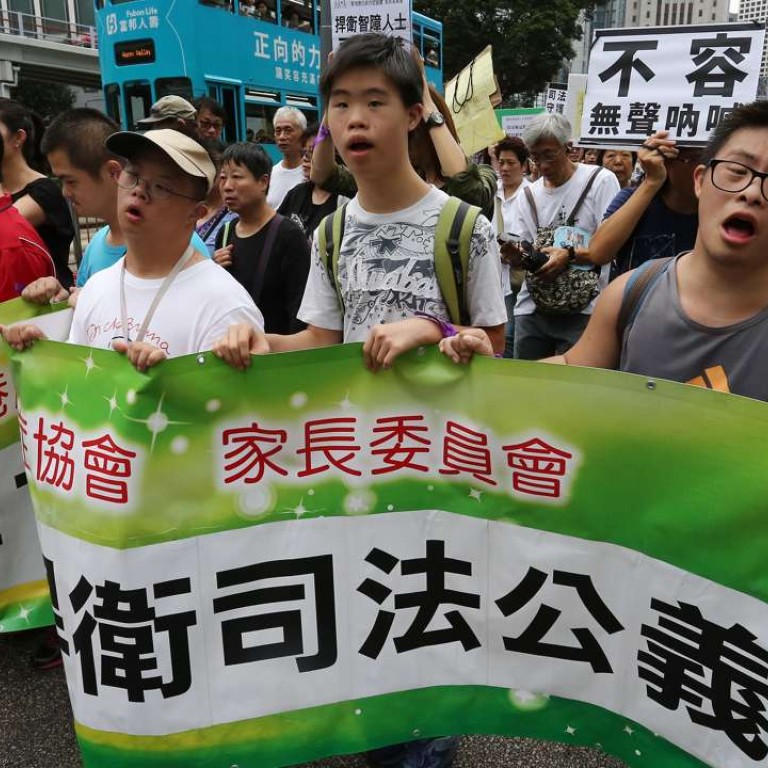
Hong Kong must better protect people with mental disabilities from violence and sexual abuse
Jane Richards calls on Hong Kong to change its legal procedures to honour its promise to safeguard those with disabilities, to the full extent of the law
December 13 marks 10 years since the UN General Assembly adopted the Convention on the Rights of Persons with Disabilities, yet little has been done to improve things for people with disabilities in Hong Kong. In 2012, the UN committee monitoring signatories’ progress criticised Hong Kong for repeated incidents of sexual violence against women and girls with intellectual disabilities. It said Hong Kong should “continue investigating these incidents and prosecute the perpetrators and all those responsible”. However, evidence suggests that the sexual abuse of women with disabilities is as prevalent as ever.
So what is going wrong? Why do people with disabilities, and women in particular, remain vulnerable to sexual violence, exploitation and abuse? Should Hong Kong’s laws and procedures operate to protect assailants, or should they ensure that those with mental impairments are not vulnerable to abuse?
Hong Kong must ensure equal access to justice for the mentally disabled
In fact, there is already provision in Hong Kong’s laws to make it easier for vulnerable people to navigate the criminal system. The law helps to make it easier for people of defective intellect or unsound mind to give evidence against alleged perpetrators. For example, a person may give evidence in court via a video link, or by a recording. This is the case for all vulnerable witnesses. Nor are these accommodations unique to Hong Kong. However, in other jurisdictions, more is being done to ensure they operate in practice.
The laws are in place, but these need to be followed with action
Similarly, it is also open to a court and jury to convict a perpetrator of sexual assault even without direct evidence from a complainant. However, this is clearly not happening.
So what can be done in Hong Kong to change this situation?
To start with, legislators, the judiciary, prosecutors and those who work with people with disabilities must ensure that Hong Kong lives up to its international legal obligations. As required by the convention, people with disabilities must have equal access to justice. This will require resources, training and education. It is not good enough that, because it might be more difficult than usual to secure a guilty conviction, an alleged perpetrator of sexual assault should not have to answer the charges against him.
Hong Kong minister pledges stronger rules after assault claims against former nursing home head
The laws are in place, but these need to be followed with action; concrete change in criminal practice and procedure will benefit not only people with disabilities, but so many others who are vulnerable to abuse – for example, children and the elderly. Ten years on from the adoption of the convention, there must be real and concrete social change.
Jane Richards is a PhD student in the Faculty of Law, University of Hong Kong
